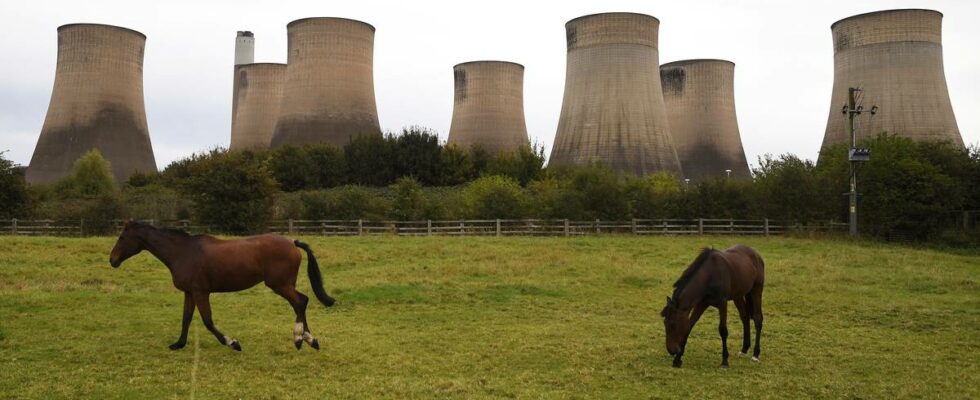The closure of the coal-fired power station in Ratcliffe-on-Soar in Nottinghamshire is hailed by trade unions, the environmental movement and the government alike. – Coal was the backbone of Britain’s energy systems for over a hundred years. Now its place is in the history books, says Tony Bosworth of the environmental organization Frieds of the Earth to the AFP news agency. The goal is for all energy in the country to come from renewable sources by 2030. Several British media write that the transition to a low-carbon society has reached a milestone with this closure. British Energy Secretary Michael Shanks says the closure marks the end of an era and that coal workers can be proud of the work they have done for over 140 years. Close to 1.2 million people worked in British coal-fired power stations during their peak years in the 1920s. – We as a nation owe several generations of Britons a huge thank you. The age of coal may be over, but a new era of good jobs in the energy sector has just begun, says Shanks. A coal miner on his last shift, before a mine in Yorkshire was closed in 2015. Photo: JOHN GILES / Afp Historical industry Demand for coal skyrocketed in the 18th century in line with population growth. But it was not until 1882 that the world’s first public coal-fired power station was opened in London. It was started by Thomas Edison’s Edison Electric Light Station and produced electricity for around 1,000 street lights in the city. The power station became very important to the industrial revolution and modern Britain. At the beginning of the 20th century, almost 100 percent of the country’s electricity came from coal. This dominance lasted until 1990, when roughly 80 percent came from coal. Then the coal industry began to decline dramatically. Gas was about to outcompete coal. The coal industry was gradually labeled as an environmental and climate disaster. The coal-fired power plants emitted twice as much of the greenhouse gas CO₂ as newer gas power plants, writes The Guardian. Demonstration at the coal-fired power plant Ratcliffe in 2009 with demands that the power plant had to close for climate reasons. Photo: DARREN STAPLES / REUTERS The environmental movement has long demanded that Ratcliffe and other coal-fired power plants be closed. In 2008, the British government decided to cut greenhouse gas emissions by 80 percent by 2050. A few years later, new taxes on greenhouse gas emissions were introduced. Over the next ten years, several of the country’s largest coal-fired power plants closed their doors, and in 2012 the share of electricity from coal had fallen to 39 percent. Then the death blow came just before the UN climate summit in Glasgow in 2022. Then the British government decided to phase out coal power by 2024. A year after the decision, the share of electricity from coal had fallen to 1 percent, according to figures from the British electricity and gas company National Grid, writes NTB. – An incredible achievement Great Britain is the first of the rich countries in the G7 group to become completely independent of polluting coal. – The country has become an example for the rest of the world, says Doug Parr, political director of Greenpeace Great Britain to the AFP news agency. Italy plans to phase out the coal industry next year, France in 2027 and Germany in 2038. The 170 remaining employees at Ratcliffe-on-Soar will remain at the plant to help with the two-year decommissioning process, according to German owner Uniper. More than half of the UK’s electricity today comes from renewable sources such as wind and solar energy. Photo: ANDREW BOYERS / Reuters More than half of the UK’s electricity today comes from renewable sources such as wind and solar energy. The rest comes from natural gas and nuclear power. – Ten years ago, coal made up a third of our electricity, says Dhara Vyas, deputy managing director of the trade body Energy UK. – To get here after only a decade where coal has been replaced by clean energy sources is an incredible achievement, she adds. – While we are aiming for new ambitious goals in the energy transition, it is worth remembering that at the time, few believed that a change at such a pace would be possible, says Vyas. Published 30.09.2024, at 16.53 Updated 01.10.2024, at 11.43
ttn-69
Great Britain closes the last coal-fired power plant – news Urix – Foreign news and documentaries

